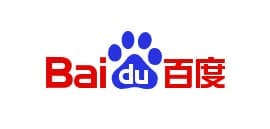 In the past couple of weeks, multiple clients and networking contacts have asked me for information regarding Baidu, the flagship search engine in China.
In the past couple of weeks, multiple clients and networking contacts have asked me for information regarding Baidu, the flagship search engine in China.
Since I have collected a list of good data points for responding to those inquiries, I thought it would be a great idea to summarize here for you as well.
Baidu SEO: Not The Same As Google
The first thing to keep in mind when dealing with Baidu is that they operate in a completely different way than Google. You won’t hear any talk of Pandas or Penguins.
But you will notice that their decision making is very nationalistic in nature.
What does that mean? Basically, they prefer anything originating in China over anything else. Some examples:
- Sites using Simplified Chinese rank the best on Baidu
- Chinese ccTLDs (.cn or .com.cn) rank faster and easier than others
- Locally hosted sites load faster and rank better
- Site speed / performance is a heavily weighted factor for ranking
- Links from Chinese websites are preferred over links from any other websites
Managing Keywords and Content for Baidu
Since it is important to use Simplified Chinese, non-native speakers will need to enlist a translation service to create content that ranks on Baidu.
But a literal translation will NOT cut it! Be sure you have native speakers who can interpret the context as well as the words being used.
This extends beyond just the content to the keywords.
Once you have translated content and keywords and want to investigate whether they will rank well, Baidu also has their own keyword tool available for you to evaluate your translated keywords.
Getting Indexed and Ranked on Baidu
If you ask any SEO who knows what they are talking about, they will advise you that submitting a URL directly to Google is NOT the optimal way to get it crawled and indexed.
More effective ways to get on their radar are social shares, pinging, and an XML sitemap.
Baidu is completely opposite. The BEST way to get indexed and ranked on Baidu is to submit to them directly.
But before you do so, make absolutely sure that you are using a simple navigation structure, one that any web crawler can figure out.
This is important, because Baidu’s crawlers can time out and fail to dig as deeply as Google’s spiders will.
You also want to make the usability as clean as possible to make the best use of the valuable crawl time Baidu awards to your website.
And an XML sitemap still helps, but not as much as directly submitting to them.
For ranking in China, one great difference is that you do not need to be the top overall listing on a SERP to get traffic from it.
Based on heat map research, we learned that Chinese internet users tend to review more of the page than Google’s user base does.
So get ranked, but don’t stress out about being in the top 3 listings.
You can still get decent traffic volume if located lower on the page.
On-Page Optimization
Many of the on-page optimizations you can make for Google will translate to Baidu, such as building keyword rich page titles and URL structures.
Even for the typical actions you would take to manage on-page domestically, the weighting of each ranking factor differs between the two search engines.
A handful of items are very different. Some highlights include:
- Page Title actually has a larger impact on ranking on Baidu than Google
- Because of the time-out issues mentioned above, it is crucial to get the bulk of the important content toward the top of each page. The target keywords should also appear there as a high priority.
- Avoid advanced technologies like Flash and Javascript. Google prefers static content, while Baidu ignores a lot of dynamic technologies altogether.
How Baidu Uses Backlinks
Backlinks matter to Baidu, just like other search engines.
The key is that they are much less sophisticated about how they measure and rank against link volumes.
As mentioned previously, links from Chinese websites and ccTLDs are valued the highest (not surprising).
Volume still matters for Baidu, and it matters a lot.
This goes for both external links pointing to your website as well as internal linking, which appears to get more weighting in how Baidu prioritizes what pages are of highest authority on your domain.
Remember the old days when a backlink was a backlink, or a vote for your page content, with Google?
That’s pretty much how Baidu still handles it, aside from the preference for local links over all others.
The other major difference is that you want to minimize outbound linking.
Websites that have too many outbound links are not favored by Baidu.
My hunch is that this ties into the time out issue for crawling.
If you link out to too many sites, the spiders probably don’t know what to do with all of those links.
This is pure speculation, so if you know more about the topic, please chime in via the comments below.
Baidu Search Engine Marketing
Baidu offers a platform similar to Google AdWords called Baidu Phoenix Nest.
For any similarities the platform has to AdWords, it is actually very different in function.
First, there is a definite connection between how Baidu serves up organic listings and how they manage PPC advertisements.
Both use the same (or nearly identical) ranking algorithm.
In addition, the ads are not clearly separated on the page, as PPC ads appear within Google’s SERPs.
Second, Baidu does not employ the same rigor as Google for evaluating relevance.
What does this mean?
Basically, if you want to bid on a keyword and are willing to pay the most for it, you get the top spot.
It doesn’t matter whether your ad text is relevant or if you have optimized the landing page experience. You paid, so you get to play.
Summary
These are only the high points of the differences between Baidu and Google for Search.
There are many smaller variations that are worth understanding if the Chinese market is important to your business.
To be thorough, here are sources that I used to confirm many of the details above. Please feel free to peruse them yourself to learn more.
Tommy Landry
Latest posts by Tommy Landry (see all)
- Where AI Introduces Risk Into Revenue Planning - February 19, 2026
- AI Is Already Influencing Your Forecasting. Do You Know Where? - February 18, 2026
- AI -Driven Discoverability Presentation at AIMA (January 2026, Full Video) - February 17, 2026




